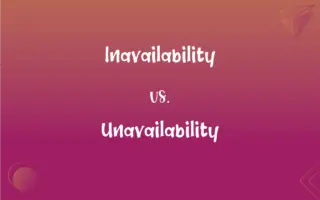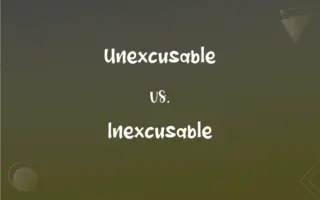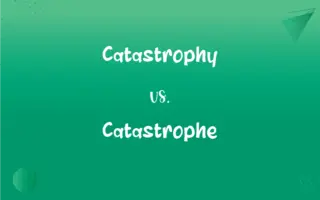Comrad vs. Comrade: Mastering the Correct Spelling
Edited by Aimie Carlson || By Janet White || Updated on March 7, 2024
"Comrad" is incorrect; the correct spelling is "comrade," meaning a companion who shares one's activities or is a fellow member of an organization.

Which is correct: Comrad or Comrade
How to spell Comrade?

Comrad is Incorrect

Comrade is Correct
ADVERTISEMENT
Key Differences
Associate "comrade" with "rade" in "parade," signaling companionship.
Remember "comrade" ends like "upgrade," indicating elevation in fellowship.
Think of "comrade" as "com(e)-rade," inviting someone to join in solidarity.
Recall "comrade" includes "rad," reflecting the radical idea of comradeship.
Link "e" at the end of "comrade" to "equality" among peers.
ADVERTISEMENT
Correct usage of Comrade
He went to battle with his comrad by his side.
He went to battle with his comrade by his side.
In times of hardship, he could always rely on his comrad.
In times of hardship, he could always rely on his comrade.
Every comrad played a vital role in the mission's success.
Every comrade played a vital role in the mission's success.
Comrade Definitions
Comrade refers to a close friend or companion in work or battle.
The soldiers relied on each other as comrades in arms.
A fellow member of a group, especially in a political or military context.
He greeted his comrade with a firm handshake.
Comrade can describe a person who provides support and solidarity.
In times of hardship, they stood by each other as true comrades.
Someone who shares similar interests or activities with another.
She found a comrade in her passion for environmental activism.
Comrade denotes a term of address among equals in a socialist or communist context.
Welcome, comrade, the speaker began, addressing the assembly.
A person who shares one's interests or activities; a friend or companion.
Often Comrade A fellow member of a group, especially a fellow member of the Communist Party.
Comrade Sentences
He was not just a colleague but a comrade, always ready to help.
Being a comrade means being a part of a brotherhood or sisterhood.
Each comrade brought unique skills and perspectives to the team.
Their comrade was captured, prompting a daring rescue mission.
Losing a comrade was the hardest part of the war for many soldiers.
Comrade Idioms & Phrases
Fallen comrade
A member of a group who has died, especially in battle.
They held a moment of silence for every fallen comrade whose sacrifice would not be forgotten.
Loyal comrade
Someone who is consistently faithful and supportive as a member of a group or team.
His loyal comrade was always there, through victories and defeats alike.
Comrade in struggle
A person who shares in one's efforts and endeavors, particularly in political or social causes.
She found a comrade in struggle who shared her vision for change.
Comrade in arms
A fellow soldier or warrior with whom one shares experiences in battle.
He went into every fight knowing his comrade in arms had his back.
Comrade of honor
A person distinguished by their peers for their bravery, loyalty, or contribution to a common cause.
At the ceremony, he was named a comrade of honor for his exceptional service.
FAQs
What is the verb form of comrade?
Comrade does not have a verb form; it's a noun.
What is the root word of comrade?
The root word is "camarada" from Spanish, meaning "chamber mate."
Why is it called comrade?
It's called "comrade" from the Spanish "camarada," meaning "roommate" or "chamber mate," signifying close association.
What is the pronunciation of comrade?
Comrade is pronounced as /ˈkɒm.reɪd/ or /ˈkɑːm.ræd/ in American English.
Which preposition is used with comrade?
"In" or "among" can be used, as in "a comrade in arms" or "among comrades."
Which conjunction is used with comrade?
Conjunctions like "and" are used, as in "comrades and friends."
Is comrade a noun or adjective?
Comrade is a noun.
What is the plural form of comrade?
The plural form is "comrades."
Which vowel is used before comrade?
The vowel "o" is used before "m" in "comrade."
Is comrade an adverb?
No, comrade is not an adverb.
What is the singular form of comrade?
The singular form is "comrade."
Is comrade an abstract noun?
No, comrade is a concrete noun referring to a person.
How many syllables are in comrade?
"Comrade" has two syllables.
Which determiner is used with comrade?
Determiners like "my" or "a" can be used, as in "my comrade" or "a trusted comrade."
Which article is used with comrade?
The indefinite "a" or definite "the" can be used, as in "a comrade" or "the comrade."
Is comrade a vowel or consonant?
"Comrade" is a word, not a vowel or consonant.
Is comrade a countable noun?
Yes, comrade is a countable noun.
Is comrade a collective noun?
No, comrade is not typically used as a collective noun.
What part of speech is comrade?
Comrade is a noun.
Is the comrade term a metaphor?
Comrade can be used metaphorically to emphasize solidarity or camaraderie in certain contexts.
Is the word comrade imperative?
No, "comrade" is not used in the imperative mood; it's a noun.
How do we divide comrade into syllables?
"Comrade" is divided as com-rade.
What is a stressed syllable in comrade?
The first syllable, "com," is stressed in "comrade."
What is another term for comrade?
Another term for "comrade" is "ally" or "associate."
What is the opposite of comrade?
The opposite could be "opponent" or "adversary."
What is the first form of comrade?
As a noun, comrade does not have verb forms.
What is the second form of comrade?
Comrade does not have a second form; it remains "comrade" in all contexts.
How is comrade used in a sentence?
Example: "During the expedition, he found a comrade in his fellow researcher."
Is comrade a negative or positive word?
Comrade is neutral but often positive, emphasizing camaraderie and solidarity.
What is the third form of comrade?
Comrade does not have a third form; it's consistently used as "comrade."
About Author
Written by
Janet WhiteJanet White has been an esteemed writer and blogger for Difference Wiki. Holding a Master's degree in Science and Medical Journalism from the prestigious Boston University, she has consistently demonstrated her expertise and passion for her field. When she's not immersed in her work, Janet relishes her time exercising, delving into a good book, and cherishing moments with friends and family.
Edited by
Aimie CarlsonAimie Carlson, holding a master's degree in English literature, is a fervent English language enthusiast. She lends her writing talents to Difference Wiki, a prominent website that specializes in comparisons, offering readers insightful analyses that both captivate and inform.


























































